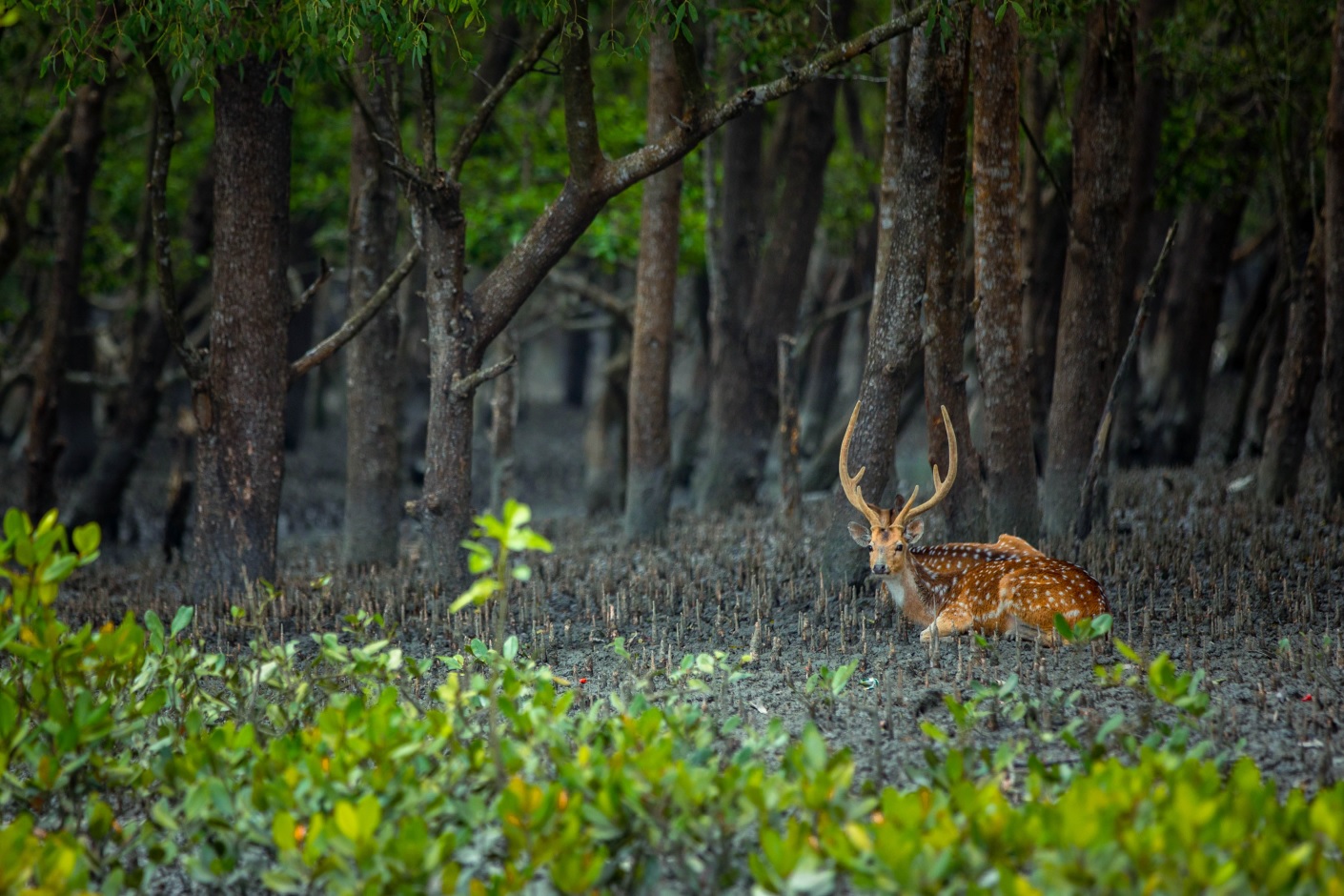Significant Progress in Sustainable Development Efforts for the Sundarbans
Nature-based solutions and Local-Led Adaptation are essential for Sustainable Development in the Sundarbans.
October 17, 2023

Sundarbans Mangrove Marvel - The world's largest mangrove forest, the Sundarbans, stands as a beacon of biodiversity and a critical asset in the fight against climate change. This unique ecosystem in Bangladesh is a testament to the importance of Nature-Based Solutions (NbS) and Locally-Led Adaptation (LLA) for sustainable development.
Efforts to ensure the sustainable development of the Sundarbans, the world's largest mangrove forest, UNDP Bangladesh and key stakeholders took a significant step forward during a Regional Consultative Workshop held in Khulna on 11 October 2023. The event, which brought together a diverse group of stakeholders, underscored the critical roles of Nature-Based Solutions (NbS) and Locally-Led Adaptation (LLA) in addressing the region's pressing challenges. As the world grapples with climate change and biodiversity preservation, the workshop served as a platform for collaborative discussions, emphasising the necessity of integrating NbS and LLA strategies for the Sundarbans' continued well-being.

Government's Commitment to Sundarbans - Chief Guest, Md. Helal Mahmud Sharif, Divisional Commissioner, Khulna, underscores the government's crucial role in preserving the Sundarbans and adapting to climate change during a significant event.
Chief Guest, Md. Helal Mahmud Sharif, Divisional Commissioner, Khulna accentuated the government's crucial role in Sundarban's conservation and climate change adaptation. He also highlighted the necessity of community engagement. He commended UNDP for taking this timely initiative and uniting the key stakeholders to integrate both LLA and NbS to address the overlapped development challenges.
Dr. Abdullah Harun Chowdhury, Professor and Head of Discipline Environmental Science at Khulna University, said bridging science and policy is essential for integrating climate and biodiversity actions. He also mentioned that academia and government should collaborate to ensure holistic and integrated development in the Sundarbans region. Dr. Chowdhury said that action research and a solid evidence base are key to promoting sustainability.
Mr. Mihir Kumar Doe, Conservator of Forests, Divisional Chief, Forest Department, Khulna, mentioned the vital roles of the world's largest mangrove forest in the communities' lives and livelihoods. He stressed the importance of mangroves' carbon storage capacity, which is four to five times higher than other forests. He also mentioned the upward trend of some of the keystone species of the forest due to the government-imposed strict regulations. He expressed concerns about the climatic impact of the biodiversity and the communities in the Sundarbans region.
Mohammad Iftekhar Hossain, UNDP's Project Coordination Specialist elaborated on the organization's existing regional programs and projects that address governance, human rights, inclusion, climate, and disaster-related development challenges. He mentioned UNDP's future plans to integrate solutions to diverse and emerging development challenges through an area-based programming approach. He reiterated UNDP's commitment to supporting the Government of Bangladesh in achieving sustainable development through community-led initiatives.

Diverse Gathering for Sustainable Solutions - Government officials, academicians, representatives from local and international organizations, United Nations agencies, and media personnel come together to address pressing challenges at the Regional Consultative Workshop
The event was attended by a diverse group, including government officials, academicians, representatives from local and international organizations, United Nations agencies, and media personnel. The collective voices reiterate UNDP's dedication to convening the collaboration of the stakeholders for integrating the solutions to emerging development challenges in the region. The Regional Consultative Workshop provided stakeholders a platform to identify areas that are key to such integrations for designing and implementing holistic programme in the Sundarbans region.
Nature-Based Solutions (NbS) and Locally-Led Adaptation (LLA) take center stage in the Sundarbans. Collaborative efforts at the Regional Consultative Workshop underscore the urgency of integrating these strategies to safeguard this vital ecosystem in the face of climate change and biodiversity challenges.

 Locations
Locations

